In recent years, the trade relationship between China and Palestine has flourished, creating new opportunities for businesses involved in import and export activities. China’s position as a leading global manufacturing hub has made it an attractive source for a diverse range of goods, from electronics to textiles. As this trade continues to expand, the need for efficient logistics solutions becomes paramount. Among the various shipping methods, sea freight stands out as a reliable and cost-effective choice, offering advantages such as reduced transportation costs and the capacity to transport large volumes of cargo. This guide delves into the key considerations, processes, and factors affecting sea freight from China to Palestine, providing valuable insights for businesses looking to navigate this dynamic trade landscape.
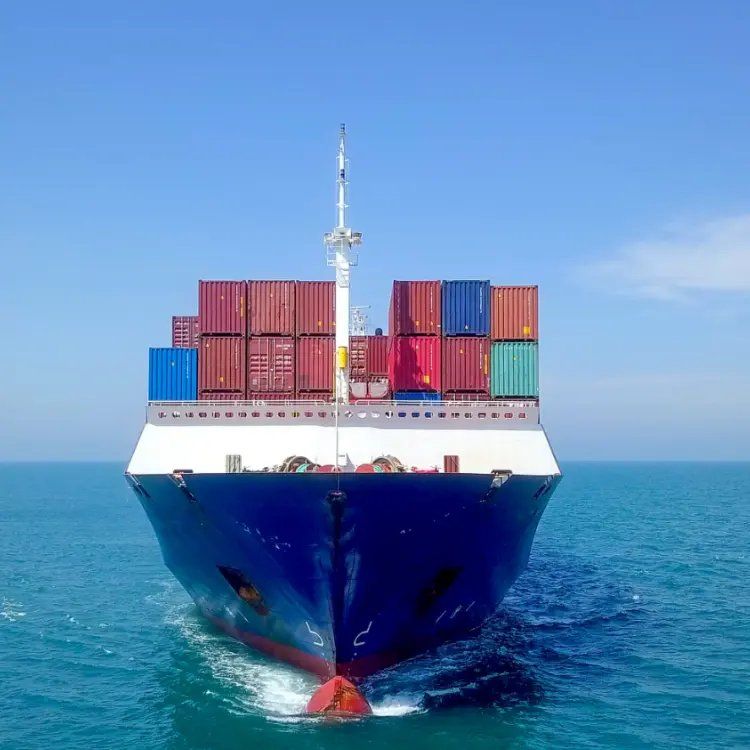
Introduction to Sea Freight From China to Palestine
The burgeoning trade relationship between China and Palestine has opened numerous avenues for businesses engaged in import and export activities. As the global economy continues to evolve, Palestine has increasingly turned to China for various goods, ranging from electronics to textiles. This trend is underscored by China’s status as one of the world’s largest manufacturing hubs and its commitment to fostering economic ties with emerging markets. Notably, the Belt and Road Initiative has also contributed to enhancing connectivity and trade routes, ensuring that shipments from China are more accessible to Palestinian markets.
One of the most efficient and cost-effective methods for shipping goods from China to Palestine is through sea freight. This mode of transportation offers several advantages, including reduced transportation costs, the ability to move large volumes of goods, and the flexibility to accommodate various types of cargo. For businesses looking to import products from China, sea freight stands out as a reliable option that balances efficiency with affordability.
Understanding Sea Freight Options
When it comes to sea freight, businesses have two primary options: Full Container Load (FCL) and Less-than-Container Load (LCL) shipping. Understanding these options can help importers make informed decisions that align with their specific shipping needs.
Full Container Load (FCL) Shipping
Benefits of FCL Shipping
FCL shipping involves the exclusive use of an entire shipping container for a single shipment. This option is particularly advantageous for businesses that need to transport large quantities of goods. Some key benefits include:
- Cost-effectiveness: FCL shipping typically results in lower freight costs per unit when compared to LCL shipping, especially for larger shipments.
- Faster transit times: Since FCL shipments are less prone to delays from consolidating cargo, they can often be delivered more quickly.
- Reduced risk of damage: By having a dedicated container, the cargo is less susceptible to damage from other shipments, which is a common concern with LCL.
Factors Affecting FCL Shipping Costs
While FCL shipping presents several advantages, it is essential to consider the factors that influence shipping costs. These factors may include:
- Container size: Different container sizes (20ft, 40ft, etc.) can affect pricing. Choosing the right size for your cargo can optimize costs.
- Origin and destination ports: Shipping routes and port fees can vary significantly, impacting overall costs.
- Fuel prices: Fluctuations in fuel prices can lead to changes in freight rates due to the direct link to operational costs.
- Customs and clearance fees: Import duties and other regulatory fees should also be factored into the overall cost of shipping.
Less-than-Container Load (LCL) Shipping
Advantages of LCL Shipping
LCL shipping is the option where multiple shipments from various customers are consolidated into a single container. This is suitable for businesses with smaller volumes of goods. Some notable advantages include:
- Lower minimum shipment requirements: Businesses can ship smaller quantities without having to pay for an entire container.
- Flexibility: LCL shipping allows businesses to import goods as needed, which is particularly useful for those with variable inventory needs.
- Ideal for startups: New businesses or those testing a market can benefit from LCL shipping as it minimizes upfront investment in shipping.
Considerations for LCL Shipping
Despite its benefits, LCL shipping also comes with considerations that businesses should be mindful of:
- Longer transit times: Consolidation of multiple shipments can lead to delays, as the container may need to wait until it is fully loaded before departing.
- Increased risk of damage: With multiple shipments in one container, there is a higher risk of damage due to shifting cargo or improper packing.
- Higher per-unit shipping costs: For larger shipments, LCL can become more expensive on a per-unit basis compared to FCL due to consolidation fees.
In navigating the complexities of sea freight, businesses can rely on services provided by Dantful International Logistics. As a highly professional, cost-effective, and high-quality one-stop international logistics service provider, Dantful can assist with everything from Customs Clearance, Warehouse Services, to Insurance Services. Our expertise in the logistics sector ensures that shipments from China to Palestine are managed efficiently, providing peace of mind to importers and exporters alike.
Shipping From China to Middle East Countries:
- Shipping from China to Saudi Arabia
- Shipping from China to UAE
- Shipping from china to KUWAIT
- Shipping From China To EGYPT
- Shipping from China to Bahrain
- Shipping From China To Jordan
- Shipping From China To Israel
- Shipping from China to Qatar
- Shipping From China To IRAQ
- Shipping from China to Iran
Top Chinese Seaports for Exports to Palestine
When shipping goods from China to Palestine, selecting the right seaport is crucial. Different ports offer varying advantages in terms of connectivity, efficiency, and overall shipping costs. Here are some of the top Chinese seaports that facilitate exports to Palestine:
Shanghai
Shanghai is not only one of the largest cities in China but also boasts the busiest port in the world. Its advanced infrastructure and extensive shipping routes make it an optimal choice for exporting goods to Palestine. Key advantages include:
- Highly developed logistics networks: The port has robust connections to both domestic and international transport systems, facilitating seamless movement of goods.
- Diverse shipping options: Businesses can choose from various carriers and shipping services, ensuring flexibility in freight forwarding.
Shenzhen
Located in Southern China, Shenzhen is renowned for its rapid economic growth and close proximity to Hong Kong. The port is ideal for exporters looking to ship electronics and consumer goods. Some benefits include:
- Special Economic Zone: Shenzhen’s status as a Special Economic Zone promotes efficient customs clearance, reducing delays for shipments.
- Proximity to major manufacturers: Many Chinese manufacturers are based in Shenzhen, allowing for quick assembly and shipping of goods.
Ningbo-Zhoushan
Ningbo-Zhoushan port is one of the top-ranked ports in China, known for its deep-water capabilities and efficient operations. A few advantages of using this port include:
- Large container capacity: The port can accommodate a significant number of containers, reducing congestion and improving shipping times.
- Strategic location: Located on the East China Sea, it offers advantageous shipping routes to the Middle East and beyond.
Guangzhou
As a major city in southern China, Guangzhou’s port plays a vital role in trade with the Middle East, including Palestine. Its advantages include:
- Diverse cargo handling capabilities: The port can handle a wide range of goods, including perishable items, textiles, and machinery.
- Excellent connectivity: Frequent shipping schedules to various destinations enhance the reliability of shipments to Palestine.
Qingdao
Qingdao is another significant port in China, particularly known for its focus on international trade. The benefits of exporting through Qingdao include:
- Efficient customs procedures: The port is recognized for its streamlined customs processes, ensuring faster clearance for imports and exports.
- Strong global shipping connections: With numerous shipping lines operating from Qingdao, businesses can benefit from competitive rates and reliable schedules.
Tianjin
Located near Beijing, Tianjin is an important port for trade activities. It supports a wide range of industries, making it suitable for various export needs, especially for goods destined for Palestine. Key points include:
- Proximity to major markets: Its location allows for easy access to North China and international markets.
- Comprehensive handling facilities: The port has facilities for handling bulk and containerized cargo, providing flexibility for businesses.
Main Palestine Seaports for Imports
As goods arrive in Palestine from various international markets, including China, the selection of ports for importing plays a significant role in ensuring timely delivery and efficient logistics. Here are the primary seaports in Palestine that facilitate imports:
Port of Gaza
The Port of Gaza serves as the main maritime gateway for imports into the Gaza Strip. Although the port’s capacity has been affected by various geopolitical factors, it remains essential for regional trade. Key features include:
- Limited cargo capacity: The port has restrictions on the size and type of vessels that can dock, affecting the volume of goods imported.
- Focus on humanitarian goods: Much of the cargo that enters through Gaza is focused on humanitarian aid and essential supplies.
Port of Ashdod
Located in Israel, the Port of Ashdod is one of the largest and most important ports in the region, serving as a key entry point for goods destined for Palestine. Notable aspects include:
- Extensive handling facilities: Ashdod’s advanced infrastructure allows for efficient loading and unloading of cargo, speeding up the import process.
- Regular shipping schedules: The port has a robust schedule of shipping lines that ensures a consistent flow of goods to Palestine.
Port of Haifa
Another critical port in Israel, the Port of Haifa, offers services that facilitate imports to Palestine. Its advantages include:
- Comprehensive logistics network: Haifa has strong connections to rail and road transport, enabling efficient distribution of imported goods throughout Palestine.
- Diverse cargo handling: The port can accommodate various types of cargo, from containers to bulk shipments.
Palestinian Authority Seaports
Although the official ports of Gaza, Ashdod, and Haifa are primarily used for imports, the Palestinian Authority has plans to develop additional seaports in the West Bank and other areas to enhance trade capabilities. Some initiatives focus on:
- Investment in infrastructure: The Palestinian government is working to develop ports that can facilitate increased trade with neighboring countries and beyond.
- Enhancing trade relationships: Establishing new ports will enable better access to international markets, allowing Palestinian businesses to expand their reach.
Understanding the dynamics of both Chinese and Palestinian ports is crucial for businesses engaged in international trade. By leveraging the advantages of top Chinese seaports for exports and the essential Palestinian ports for imports, companies can optimize their logistics operations and enhance overall efficiency in the supply chain. For a seamless shipping experience, consider partnering with Dantful International Logistics, which offers comprehensive services tailored to the needs of global traders.
You may be interested in the following related articles:
- Shipping from China to Lebanon
- Shipping from China to Syria
- Shipping from China to Yemen
- Shipping From China To Afghanistan
Sea Freight Shipping Process
Understanding the sea freight shipping process is essential for businesses looking to import goods from China to Palestine. Each step in this process is crucial in ensuring that shipments are handled efficiently and comply with relevant regulations. Below is a comprehensive breakdown of the key stages involved in sea freight shipping.
Booking and Documentation
The first step in the sea freight process involves booking the shipment with a reliable freight forwarder. This step entails several important actions:
- Choosing a Freight Forwarder: Selecting a reputable freight forwarder, such as Dantful International Logistics, ensures that all logistics are handled professionally.
- Documentation: Proper documentation is critical to prevent delays. Key documents include the Bill of Lading (BOL), Commercial Invoice, Packing List, and any required export licenses.
- Booking Confirmation: Once the documentation is submitted and the booking is confirmed, the freight forwarder will provide details regarding the shipment’s schedule and any specific requirements.
Container Loading and Sealing
Once the booking is confirmed, the next stage involves the loading of goods into the shipping container:
- Container Selection: Depending on the volume and type of goods, the appropriate container size and type (e.g., standard, refrigerated, or open-top) will be chosen.
- Loading Process: Goods should be loaded carefully to avoid damage. Proper packing techniques ensure that cargo is secure and stable during transit.
- Sealing the Container: After loading, the container is sealed with a unique seal number that is recorded in the shipping documentation. This seal ensures the integrity of the shipment throughout its journey.
Ocean Transportation
With the container sealed and the documentation prepared, the shipment is ready for ocean transportation:
- Vessel Departure: The shipping line will notify the freight forwarder of the sailing date and other pertinent information. It is crucial for importers to track the vessel’s journey.
- Transit Duration: The duration of ocean transport will depend on the shipping route and any potential stops along the way, influencing the overall shipping time.
- Monitoring: Many freight forwarders provide real-time tracking services, allowing businesses to monitor the status of their shipment during transit.
Customs Clearance in Palestine
Upon arrival at the destination port, the shipment must undergo customs clearance before it can be delivered:
- Documentation Submission: The freight forwarder submits all required documentation to Palestinian customs authorities. This includes the Bill of Lading, commercial invoice, and any additional documents.
- Duties and Taxes: Customs officials will assess the shipment and calculate any applicable duties and taxes. It is vital for importers to be aware of these costs to avoid surprises.
- Inspection: Customs may require a physical inspection of the goods to ensure compliance with local laws and regulations.
Final Delivery to Destination
Once customs clearance is complete, the final stage involves the delivery of goods to the designated location:
- Transportation from Port: The freight forwarder coordinates the transportation of the goods from the customs clearance area to the final destination in Palestine.
- Delivery Confirmation: Upon delivery, the consignee should confirm receipt of the goods and inspect them for any damage incurred during transit.
- Documentation Retention: Keeping copies of shipping documents is essential for record-keeping and future reference regarding any potential disputes.
Factors Affecting Sea Freight Costs
Several factors influence the costs associated with sea freight shipping from China to Palestine. Understanding these factors can help businesses make informed decisions regarding their shipping strategy.
Container Size and Type
The cost of shipping is heavily influenced by the size and type of container used:
- Standard Containers: Typically available in 20ft and 40ft sizes, these containers are suitable for most cargo types and offer competitive pricing.
- Specialty Containers: Refrigerated containers (reefer), open-top containers, and flat racks may incur higher costs due to their specialized nature.
Shipping Route and Distance
The shipping route taken and the distance from the port of departure to the destination port significantly affect freight costs:
- Direct Routes: Shorter, more direct routes generally result in lower shipping costs.
- Transshipment Ports: Routes that require transshipment (changing vessels) can incur additional charges and longer transit times.
Fuel Prices and Surcharges
Fuel prices can fluctuate due to market conditions, impacting shipping costs:
- Bunker Adjustment Factor (BAF): This surcharge is added to cover fluctuations in fuel prices. Higher fuel prices typically translate to increased shipping costs.
- Environmental Regulations: Compliance with international maritime regulations regarding fuel emissions may lead shipping lines to impose additional surcharges.
Customs Duties and Taxes
Customs duties and taxes imposed by Palestinian authorities are significant cost factors:
- Tariffs: Import duties can vary based on the nature of the goods and their country of origin, affecting overall costs.
- Value-Added Tax (VAT): Importers should also consider VAT applicable to imported goods, which can add to the total expense.
Insurance and Handling Fees
Lastly, insurance and handling fees contribute to the overall cost of shipping:
- Cargo Insurance: Securing insurance can provide peace of mind against potential loss or damage during transit. The cost of insurance is based on the value of the goods being shipped.
- Handling Fees: Charges for loading, unloading, and other handling aspects at the port can accumulate, reflecting the complexity of managing the shipment.
By understanding these factors, businesses can better strategize their shipping processes and budget effectively for imports from China to Palestine. Partnering with a professional logistics provider like Dantful International Logistics can further enhance efficiency and cost-effectiveness in managing sea freight operations.
Tips for Optimizing Sea Freight From China to Palestine
Navigating the complexities of sea freight from China to Palestine requires careful planning and execution. By implementing strategies to optimize the shipping process, businesses can enhance efficiency and reduce costs. Here are several actionable tips:
Choosing the Right Shipping Partner
Selecting the right shipping partner is critical to ensuring successful deliveries. Consider the following factors:
- Experience and Expertise: Look for freight forwarders with a solid track record in handling shipments to Palestine. Their knowledge of local customs and regulations can aid in smoother transactions.
- Network and Connections: A shipping partner with extensive connections to ports, carriers, and local businesses can provide better rates and logistics solutions.
- Customer Service: A responsive and proactive shipping partner will keep you informed throughout the shipping process and address any issues that arise promptly.
Proper Packaging and Labeling
Effective packaging and labeling of goods can significantly affect the shipping process:
- Quality Packaging: Use durable materials that can withstand the rigors of sea transport. Proper packing can minimize the risk of damage during transit.
- Clear Labeling: Ensure that all packages have clear, accurate labels that include important information such as destination, contents, and handling instructions. This helps customs officials and shipping personnel process items efficiently.
Timely Communication with Stakeholders
Maintaining timely communication with all stakeholders involved in the shipping process is essential:
- Freight Forwarder: Regular updates from your freight forwarder can help you track the progress of your shipment and anticipate any potential delays or issues.
- Suppliers and Manufacturers: Communicate with suppliers to ensure that goods are ready for shipment on time, reducing the risk of delays.
- Local Authorities: Keeping in touch with local customs and regulatory authorities can help you stay informed about any changes in import regulations or requirements that may affect your shipment.
Staying Updated on Regulations and Requirements
Understanding and complying with current regulations and requirements is vital for successful sea freight operations:
- Customs Regulations: Familiarize yourself with the customs regulations of both China and Palestine. This includes knowledge of tariffs, duties, and documentation required for import.
- Shipping Insurance: Consider obtaining comprehensive shipping insurance to protect against potential loss or damage during transit. Ensure that your insurance policy covers the specific risks associated with your shipment.
- Health and Safety Compliance: Be aware of any health or safety regulations, especially for certain types of goods, such as food or pharmaceuticals, which may require additional permits or inspections.
Choosing the Right Sea Freight Forwarder
The selection of a sea freight forwarder can significantly impact the success of your shipping operations. A reliable freight forwarder will help streamline processes and mitigate risks. Here’s what to consider when making this crucial decision:
Qualities of a Reliable Freight Forwarder
Identifying the right freight forwarder involves assessing specific qualities that indicate reliability and competence:
- Reputation: Look for a forwarder with positive reviews and a solid reputation in the industry. References from other businesses can provide insights into their reliability.
- Expertise in International Shipping: Ensure the forwarder has experience in international logistics, particularly with shipments to regions like Palestine.
- Transparency: A trustworthy freight forwarder should offer transparent pricing and clear communication regarding services, timelines, and potential challenges.
Questions to Ask When Selecting a Forwarder
To aid in your evaluation, consider asking the following questions:
- What services do you offer?: Determine whether the forwarder provides comprehensive services, including Customs Clearance, Insurance Services, and Warehouse Services.
- How do you handle delays or issues?: Inquire about their procedures for managing unexpected delays or challenges during shipping.
- Can you provide references?: Request references from previous clients to gauge their satisfaction with the forwarder’s services.
Why Choose Dantful Logistics
When selecting a freight forwarder, Dantful International Logistics emerges as a top choice for businesses looking to optimize their shipping processes from China to Palestine. Here’s why:
- Highly Professional Services: Dantful stands out with its commitment to providing professional, cost-effective, and high-quality logistics solutions tailored to the needs of global traders.
- Expert Knowledge: With extensive experience in international shipping and a thorough understanding of the regulations governing trade, Dantful ensures compliance and efficiency at every step.
- Comprehensive Offerings: From ocean freight and air freight to warehouse services and insurance, Dantful provides a full suite of logistics services to facilitate seamless shipments.
- Proactive Communication: Dantful’s dedicated team maintains open lines of communication, keeping clients informed and addressing any concerns promptly.
By choosing Dantful as your freight forwarding partner, you can enhance the efficiency and effectiveness of your shipping operations, allowing you to focus on growing your business.
Dantful International Logistics Services:
- Dantful Ocean Freight Services
- Air Freight From China
- Amazon FBA Freight Forwarding
- WAREHOUSE Services
- One-Stop Customs Clearance Solution
- Cargo Insurance Services in China
- DDP Shipping Services By Dantful Logistics
- Out of Gauge Cargo Transportation Shipping Services

Young Chiu is a seasoned logistics expert with over 15 years of experience in international freight forwarding and supply chain management. As CEO of Dantful International Logistics, Young is dedicated to providing valuable insights and practical advice to businesses navigating the complexities of global shipping.

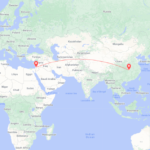





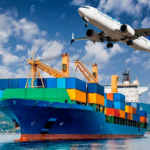

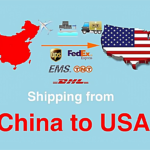
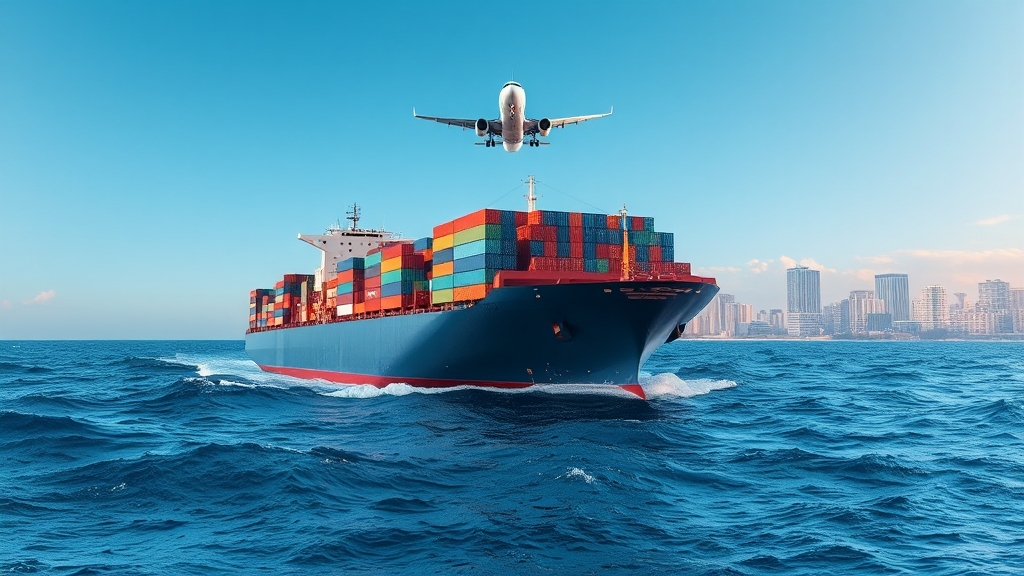
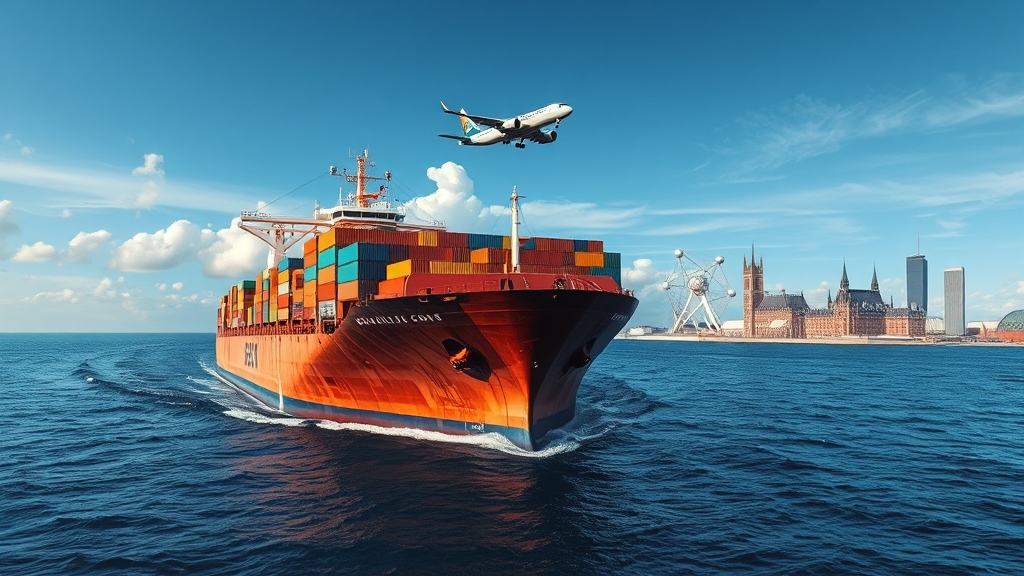
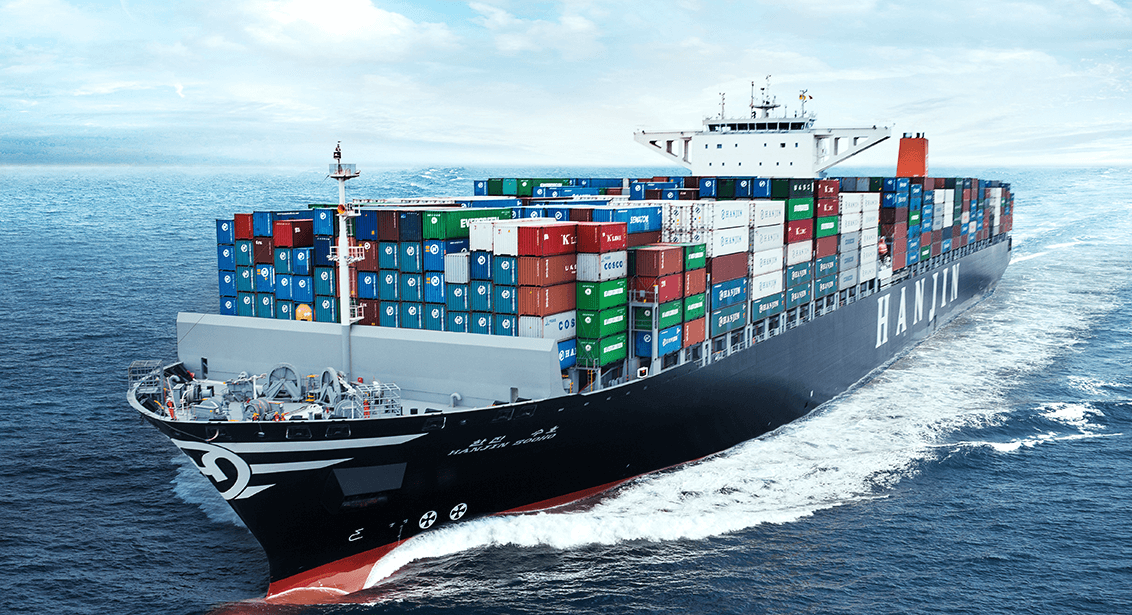
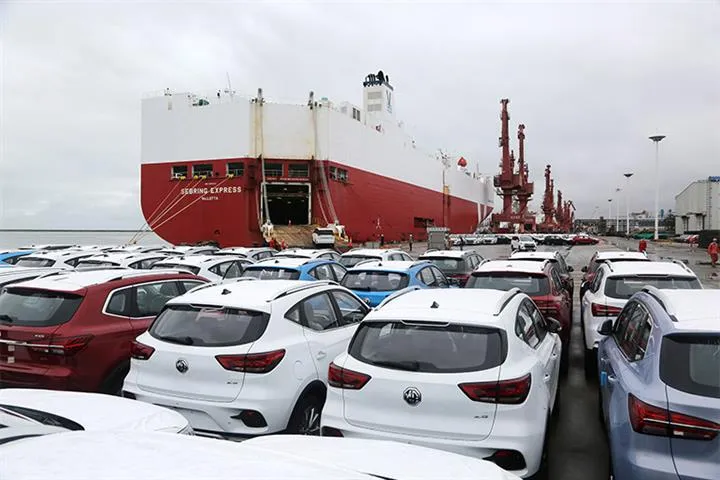






 Afrikaans
Afrikaans Shqip
Shqip አማርኛ
አማርኛ العربية
العربية Հայերեն
Հայերեն Azərbaycan dili
Azərbaycan dili Euskara
Euskara Беларуская мова
Беларуская мова বাংলা
বাংলা Bosanski
Bosanski Български
Български Català
Català Cebuano
Cebuano Chichewa
Chichewa 简体中文
简体中文 繁體中文
繁體中文 Corsu
Corsu Hrvatski
Hrvatski Čeština
Čeština Dansk
Dansk Nederlands
Nederlands English
English Esperanto
Esperanto Eesti
Eesti Filipino
Filipino Suomi
Suomi Français
Français Galego
Galego ქართული
ქართული Deutsch
Deutsch Ελληνικά
Ελληνικά Kreyol ayisyen
Kreyol ayisyen Harshen Hausa
Harshen Hausa Ōlelo Hawaiʻi
Ōlelo Hawaiʻi עִבְרִית
עִבְרִית हिन्दी
हिन्दी Hmong
Hmong Magyar
Magyar Íslenska
Íslenska Igbo
Igbo Bahasa Indonesia
Bahasa Indonesia Gaeilge
Gaeilge Italiano
Italiano 日本語
日本語 Basa Jawa
Basa Jawa ಕನ್ನಡ
ಕನ್ನಡ Қазақ тілі
Қазақ тілі ភាសាខ្មែរ
ភាសាខ្មែរ 한국어
한국어 كوردی
كوردی Кыргызча
Кыргызча ພາສາລາວ
ພາສາລາວ Latin
Latin Latviešu valoda
Latviešu valoda Lietuvių kalba
Lietuvių kalba Lëtzebuergesch
Lëtzebuergesch Македонски јазик
Македонски јазик Malagasy
Malagasy Bahasa Melayu
Bahasa Melayu മലയാളം
മലയാളം Maltese
Maltese Te Reo Māori
Te Reo Māori मराठी
मराठी Монгол
Монгол ဗမာစာ
ဗမာစာ नेपाली
नेपाली Norsk bokmål
Norsk bokmål پښتو
پښتو فارسی
فارسی Polski
Polski Português
Português ਪੰਜਾਬੀ
ਪੰਜਾਬੀ Română
Română Русский
Русский Samoan
Samoan Gàidhlig
Gàidhlig Српски језик
Српски језик Sesotho
Sesotho Shona
Shona سنڌي
سنڌي සිංහල
සිංහල Slovenčina
Slovenčina Slovenščina
Slovenščina Afsoomaali
Afsoomaali Español
Español Basa Sunda
Basa Sunda Kiswahili
Kiswahili Svenska
Svenska Тоҷикӣ
Тоҷикӣ தமிழ்
தமிழ் తెలుగు
తెలుగు ไทย
ไทย Türkçe
Türkçe Українська
Українська اردو
اردو O‘zbekcha
O‘zbekcha Tiếng Việt
Tiếng Việt Cymraeg
Cymraeg יידיש
יידיש Yorùbá
Yorùbá Zulu
Zulu